Arctic Heavy Fuel Oil Ban Inches Forward, but loopholes denounced as “outrageous”
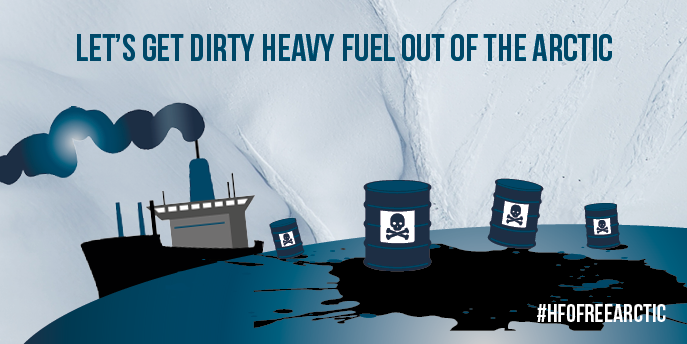
NGOs and Indigenous groups today cautiously acknowledged progress by the International Maritime Organization (IMO) and its Member States in agreeing on a draft regulation on heavy fuel oil (HFO) use and carriage in the Arctic, but denounced the inclusion of loopholes in the text that mean the ban will not come into effect until 2029, leaving the Arctic exposed to the growing threat of HFO spills for close to another decade.
Radio Canada International: Inuit orgs welcome Canada’s support of heavy fuel oil ban in Arctic waters
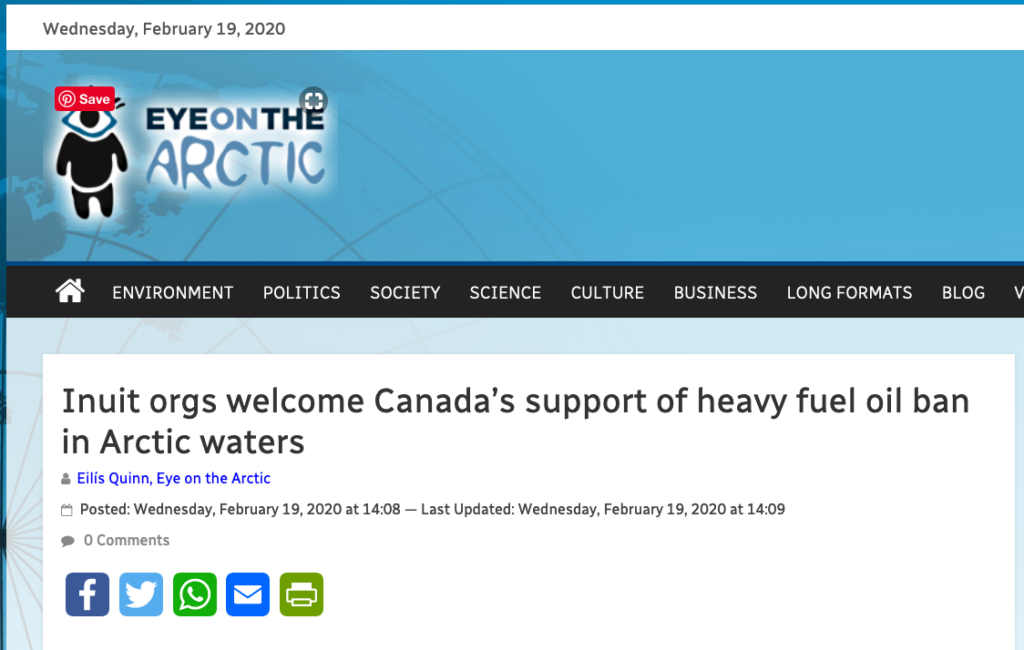
Canada’s support of an international ban of heavy fuel oil (HFO) in Arctic waters is an important step to safeguard the long-term future of indigenous communities in the North, two Inuit organizations say.
Clean Arctic Alliance Response to Canada’s Backing of Heavy Fuel Oil Ban
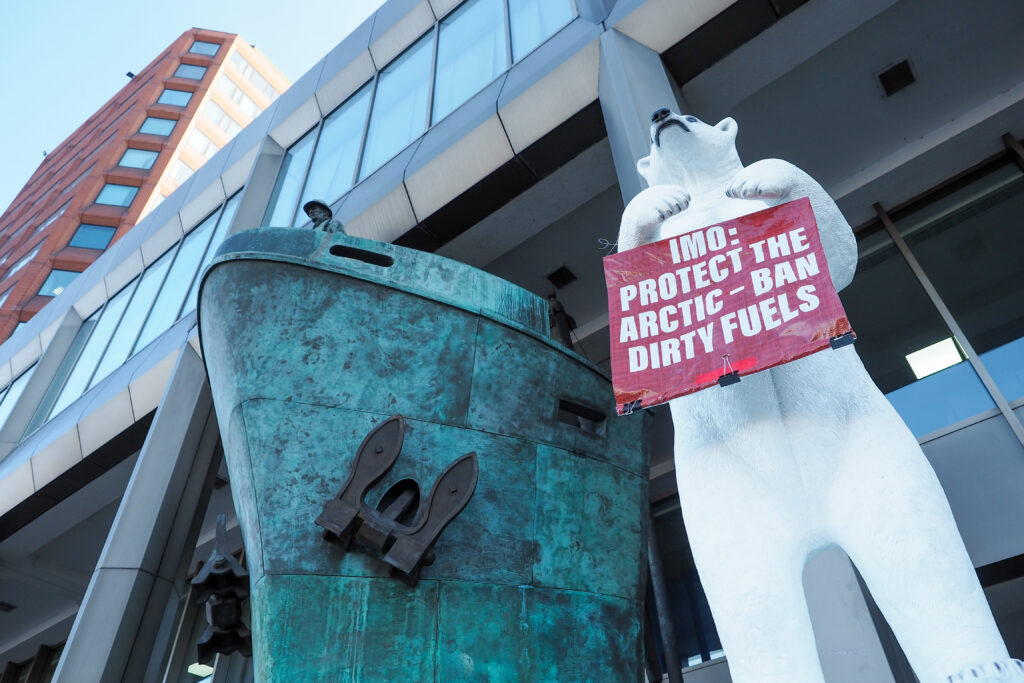
The Clean Arctic Alliance welcomes Canada’s support for a ban on the use and carriage of heavy fuel oil in Arctic waters, however we believe the International Maritime Organization must not entertain any arguments calling for a delay or exemptions in the implementation of an Arctic ban on HFO”
Will London Shipping Summit Act to Protect Arctic from Spills and Emissions?
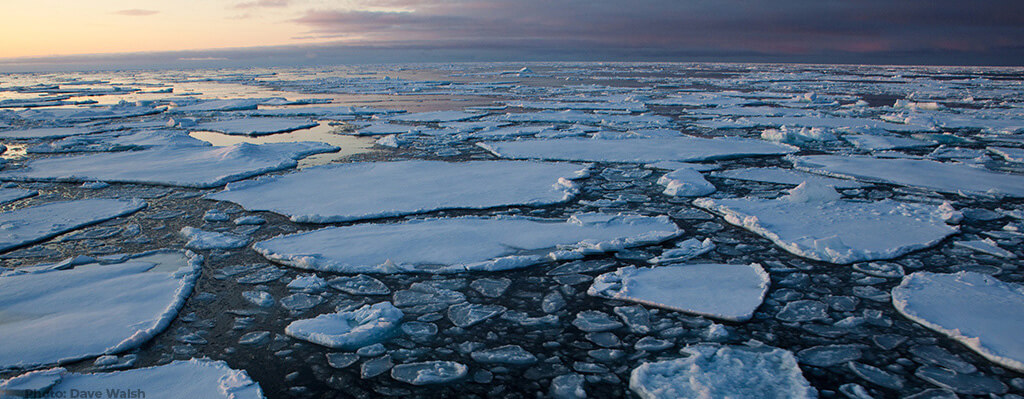
NGOs this morning called on the International Maritime Organization (IMO) to protect the Arctic marine environment from the impacts of international shipping, by agreeing to a new regulation banning the use and carriage of heavy fuel oil (HFO) as fuel by ships operating in Arctic waters during this week’s “Arctic IMO Summit” in London.
Radio Canada International: Canada plans to support ban on heavy fuel oil in Arctic shipping
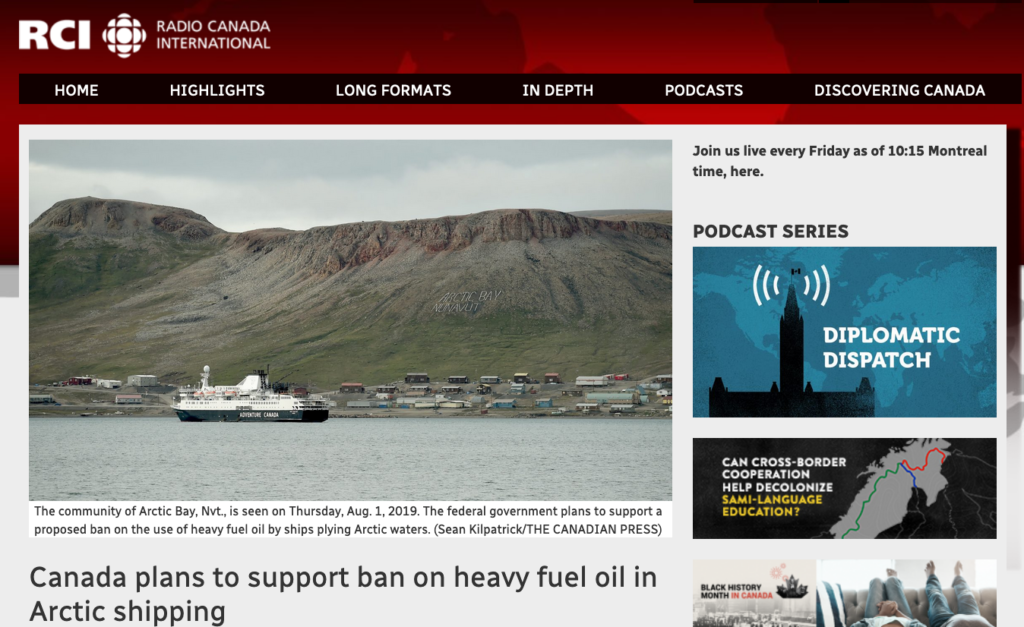
Canada will support a ban on the use of heavy fuel oil by ships plying Arctic waters at the upcoming meeting of the International Maritime Organization (IMO) in London, Transport Canada officials announced during a teleconference call Wednesday, according to people who participated in the call.
Video: What is Heavy Fuel Oil? And why is it bad?
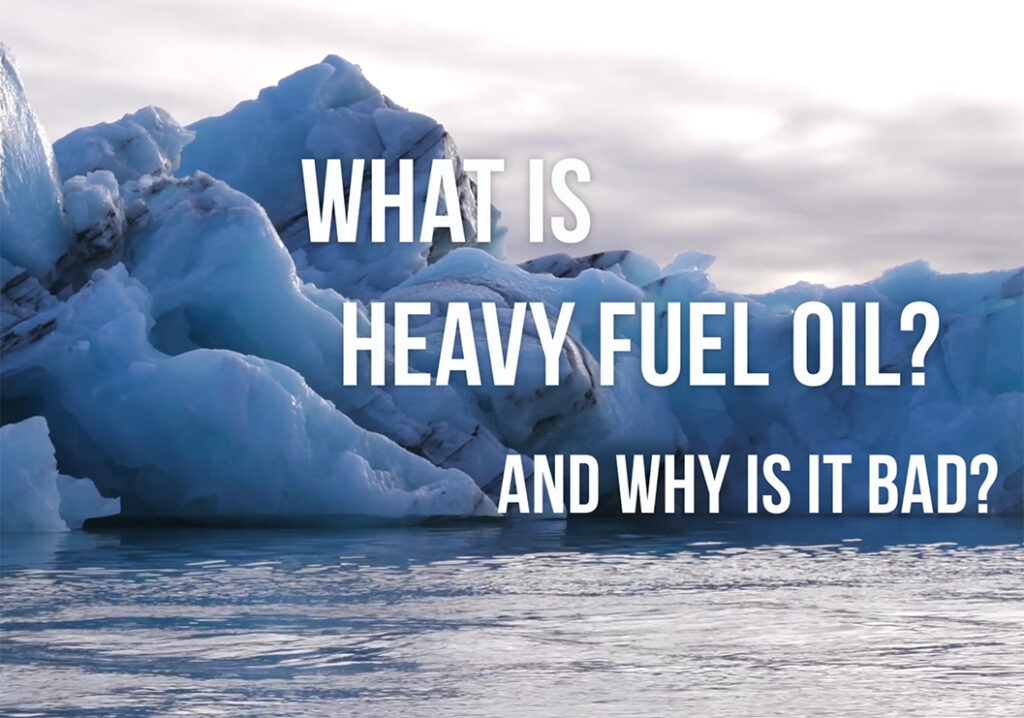
The use of heavy fuel oil by ships crossing the Arctic creates the risk of a catastrophic spill – which would be practically impossible to clean up. Worse still, when heavy fuel oil (HFO ) is burned in ship’s engines, the black carbon emitted falls onto Arctic snow or ice.
Infographic: The Arctic Climate Crisis – Calling Global Shipping to Action
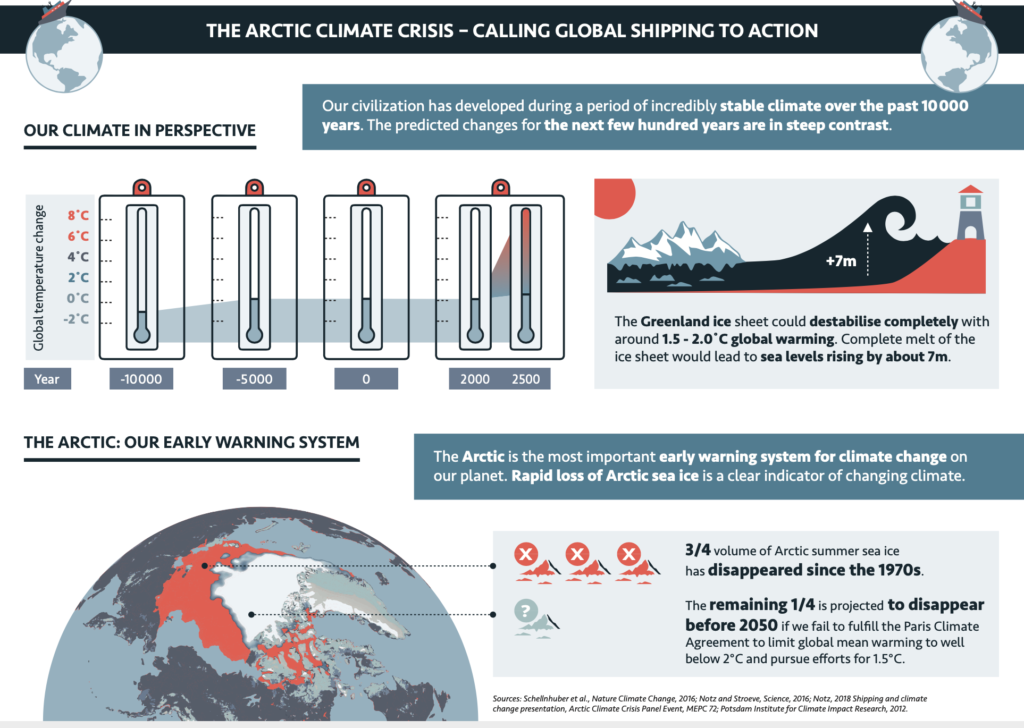
Our civilization has developed during a period of incredibly stable climate over the past 10000 years. The predicted changes for the next few hundred years are in steep contrast. The Arctic is the most important early warning system for climate change on our planet. Rapid loss of Arctic sea ice is a clear indicator of changing climate.
Infographic: Do not delay a ban on the use and carriage of HFO as fuel by Arctic shipping
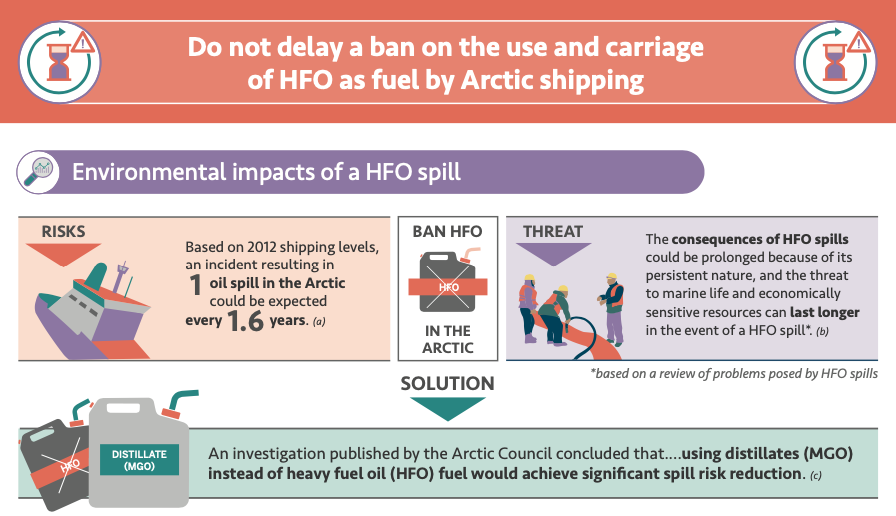
Infographic detailing the environmental and social impacts of a HFO spill; the economic impacts of a ban on HFO in the Arctic.
Letter: Fuel Industry must work to reduce shipping’s black carbon and CO2 emissions
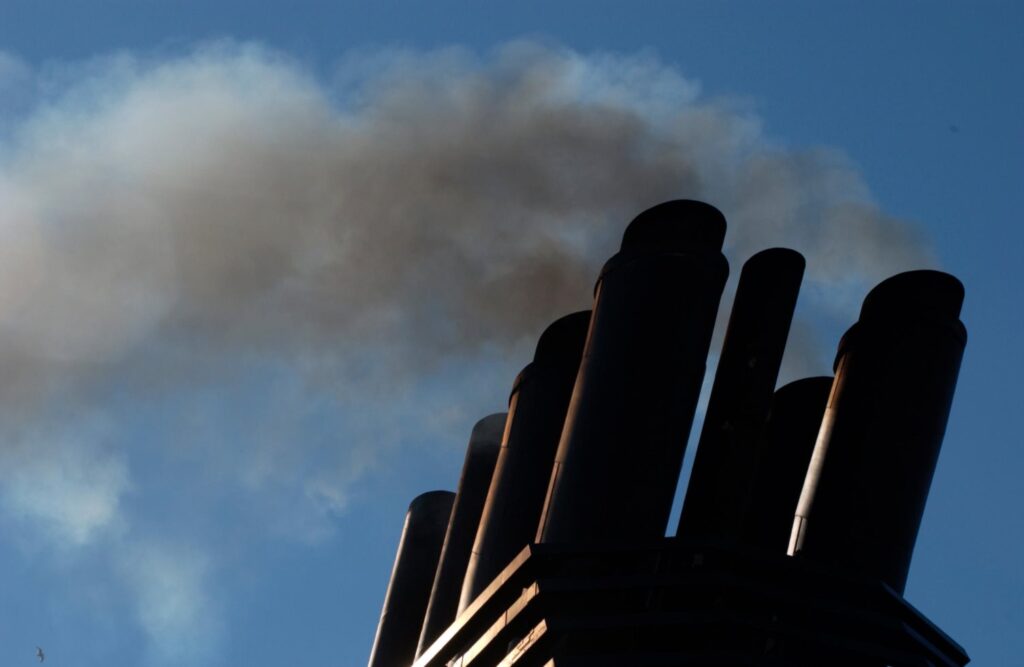
The Clean Arctic Alliance has published an open letter to industry requesting that not only should individual organisations and companies take responsibility for ensuring that their fuels to not lead to further pollution, but that they should actively work to limit the climate impact from global shipping.
Beyond Fossil Fuels: The Case for the Arctic
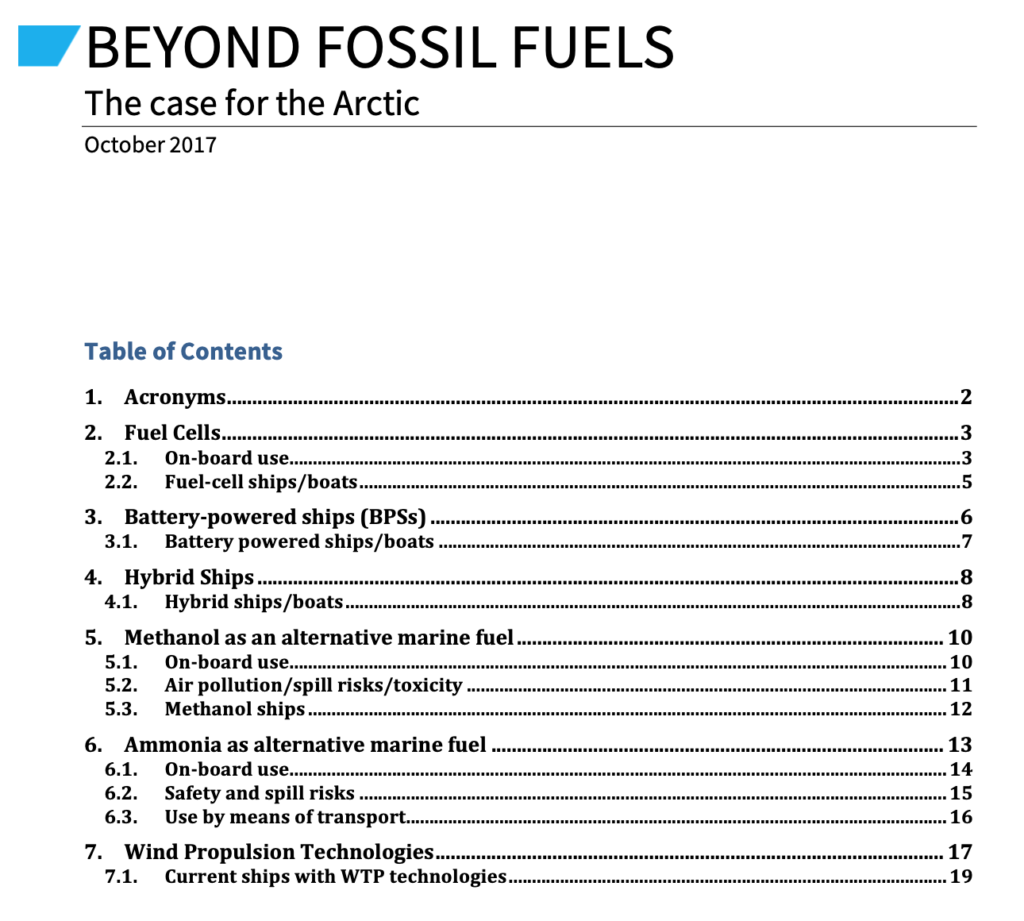
Beyond Fossil Fuels: The Case for the Arctic Transport & Environment, October 2017 Beyond Fossil Fuels: The Case for the Arctic (pdf)

